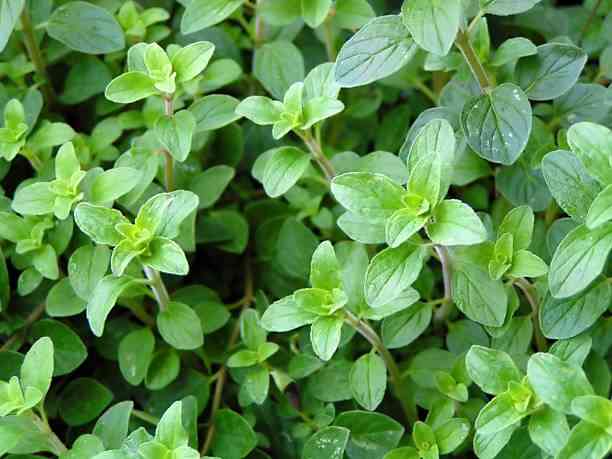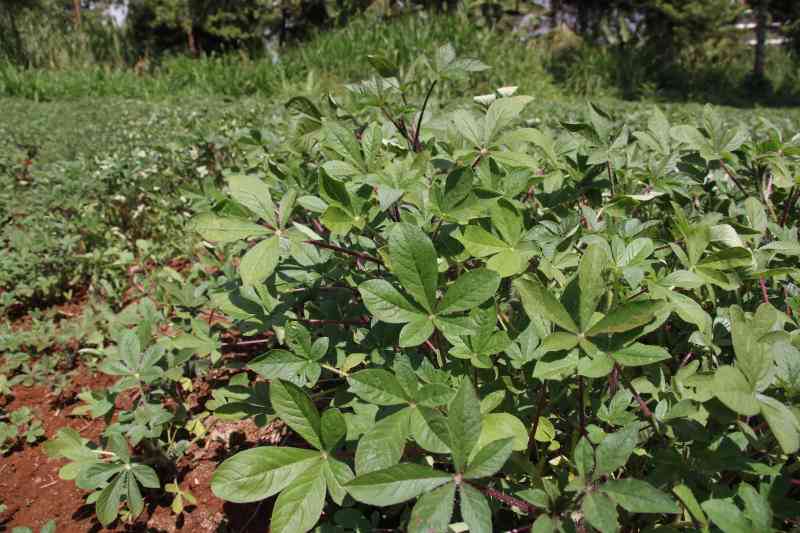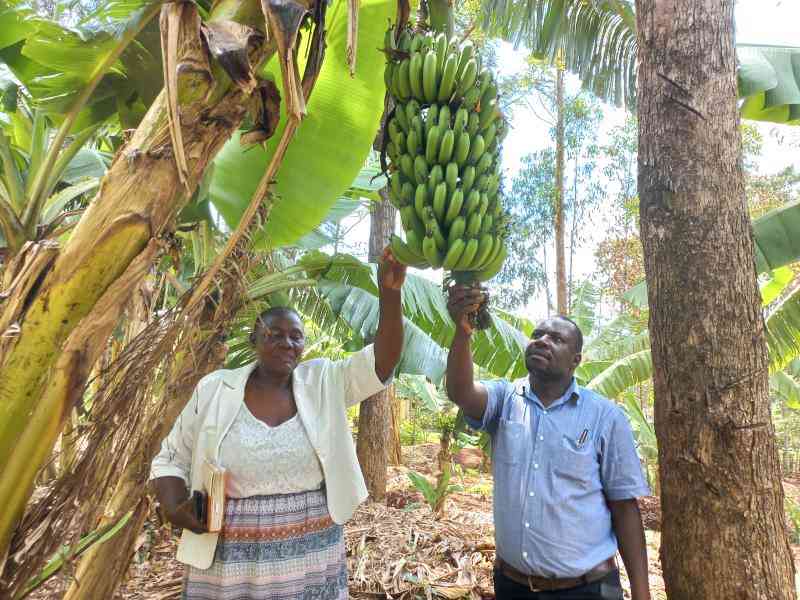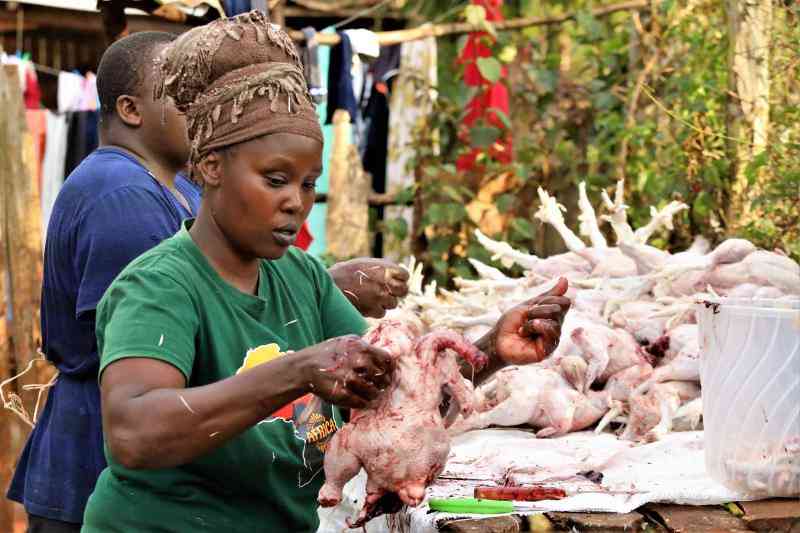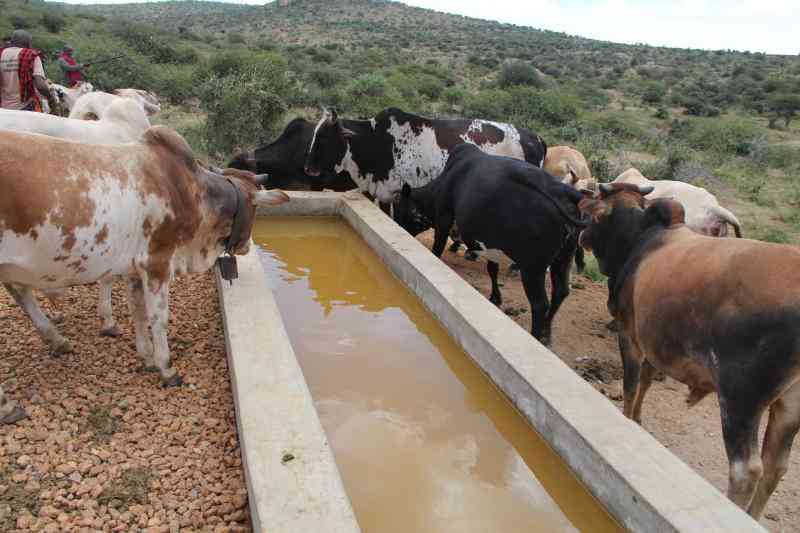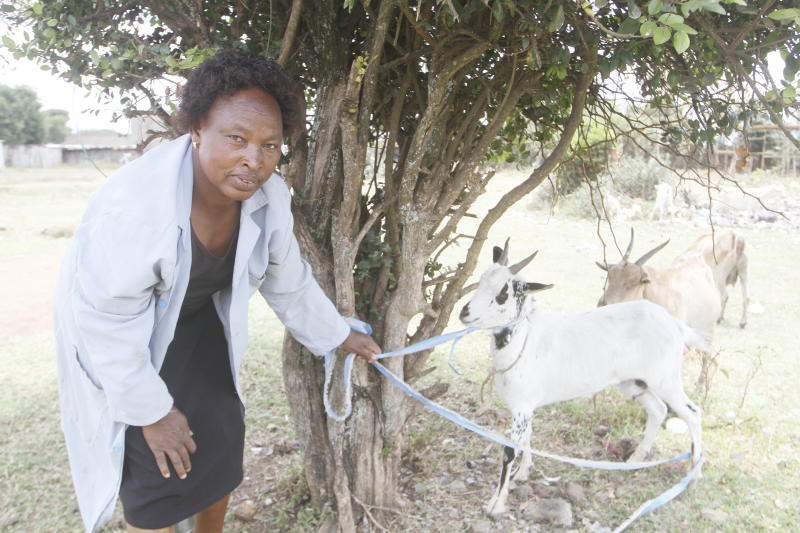
A few years ago, Rosemary Juma (pictured) noticed something strange happening to her body.
Every morning, when she woke up, she would feel stiffness in her joints and it would be accompanied by immense pain. After several visits to the doctor, she was diagnosed with arthritis.
“I was scared. I was not even 50 years yet. I also had memory loss on many occasions. It pained me that I was young yet I had symptoms of diseases associated with the old,” she says.
Medics advised her to change her lifestyle and embrace healthy eating. One of the recommendations was to start drinking goat milk. This advise was timely and it changed her life.
Health benefits
“I realised that my symptoms became less severe the more I took goat milk. Then I started noticing that there were mornings when I would wake without any pain. I was improving,” she says.
She however says buying the daily intake of goat milk was a big challenge.
She had just moved from Embu to her current home in Kieni, Nyeri county, and had not yet found an income-generating activity that would allow her to buy goat milk every day.
“It is more expensive than cow milk and not many people have it. There were days I had the money, but I could not even get it,” she says.
To solve that issue, she decided to start rearing her own goats. That was in 2012, and lack of access to internet and other forms of media meant that she was wading into the unknown through experimenting and reaching out to other farmers to ask for help.
“I started with a few goats and I would dread the thought of them getting sick or any situation that I did not know how to handle coming up,” she says.
Her anxiety was relieved when she got a call from her neighbour Anastacia Wanjiru who was also a farmer and chairlady of Mathira Women's Group.
Good news
“She had good news. JKUAT was looking for women farmers who wanted to be trained on best practices in goat-farming in a bid to improve their living standards,” she says.
She was elated. During the training, she was taught how to clean the structure where she kept her animals to prevent diseases.
The training also focused on chicken- and rabbit-rearing for profit and simple record- and book-keeping.
Wanjiru, who has since become a trainer of trainers says for long, women in the area navigated through hard times that small scale farmers face without guidance.
“Most of the women in villages engage in agribusiness because it can easily be combined with other income-generating activities, especially if the farming is on a small scale. Sadly, there is a lot of potential in growing such farms but we never had any training opportunities until JKUAT came to the rescue,” she says.
Joan Mugambi, head of extension services at Jomo Kenyatta University of Agriculture and Technology (JKUAT) who coordinated the programme says they partnered with different organisations and identified women who showed potential.
“There are many women who thirst for knowledge and we decided to take it to them. The main criteria for choosing the beneficiaries was identifying the ones in a group so that they can share the knowledge with the rest through a structured system,” she says.
It has been seven years since they were trained, and Juma has improved her farm tremendously.
Her goats have multiplied and she now gets goat milk every day. She uses some of the milk to feed her family and sells the rest.
During the festive season and major holidays, she sells some of her goats to those hosting friends and having parties.
She has faced some challenges in the past. For instance, two years ago, four of her goats were stolen as they grazed.
“High poverty levels here make farmers a target, especially from young men who are jobless and are looking for quick money,” she says.
To boost her income, she also keeps kienyeji chicken and says the training from JKUAT taught her the basics like how to immunise her chicks.
“There are days when farmers in this region would lose chicken to diseases such as coccidiosis which is very common,” she says.
Wanjiru says more than 100 women have so far benefited from the training, as some of those who were trained became trainers and have been moving around the country encouraging upcoming agriprenuers not to give up.
“We now have a platform where we can talk about issues affecting our lives as farmers, including marketing our products which is a great challenge here,” she says.
She adds that being in the women's group did not only make them right candidates in the county for the training, but it also strengthened their bond and now they even act as potential customers to each other.
“We all farm different things and we buy from each other. We are always consulting on what we have in excess and if there is anyone who needs it,” she says.
Farming is rewarding and Juma is already tasting its fruits and is building a house, with the money she gets from farming and selling clothes at Chaka market.
Learning to balance her books and apply for loans were some of the skills that they were taught and have helped her transform her business.
“Women can do a lot of things if you give them the right skills and make them believe in themselves. There is no limit for them,” Mugambi says, reinforcing what Joan of JKUAT says was one of the mandates they had when they formulated the training.
They wanted to instill self confidence in the farmers while equipping them with skills.
Want to get latest farming tips and videos?
Join Us
 The Standard Group Plc is a multi-media organization
with investments in media platforms spanning newspaper print operations,
television, radio broadcasting, digital and online services. The Standard Group
is recognized as a leading multi-media house in Kenya with a key influence in
matters of national and international interest.
The Standard Group Plc is a multi-media organization
with investments in media platforms spanning newspaper print operations,
television, radio broadcasting, digital and online services. The Standard Group
is recognized as a leading multi-media house in Kenya with a key influence in
matters of national and international interest.
 The Standard Group Plc is a multi-media organization
with investments in media platforms spanning newspaper print operations,
television, radio broadcasting, digital and online services. The Standard Group
is recognized as a leading multi-media house in Kenya with a key influence in
matters of national and international interest.
The Standard Group Plc is a multi-media organization
with investments in media platforms spanning newspaper print operations,
television, radio broadcasting, digital and online services. The Standard Group
is recognized as a leading multi-media house in Kenya with a key influence in
matters of national and international interest.


